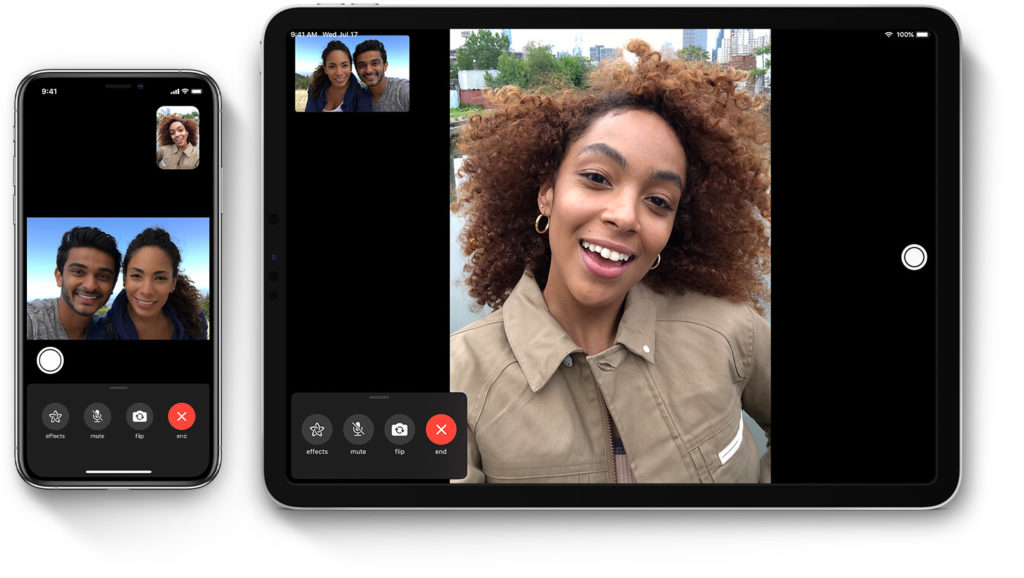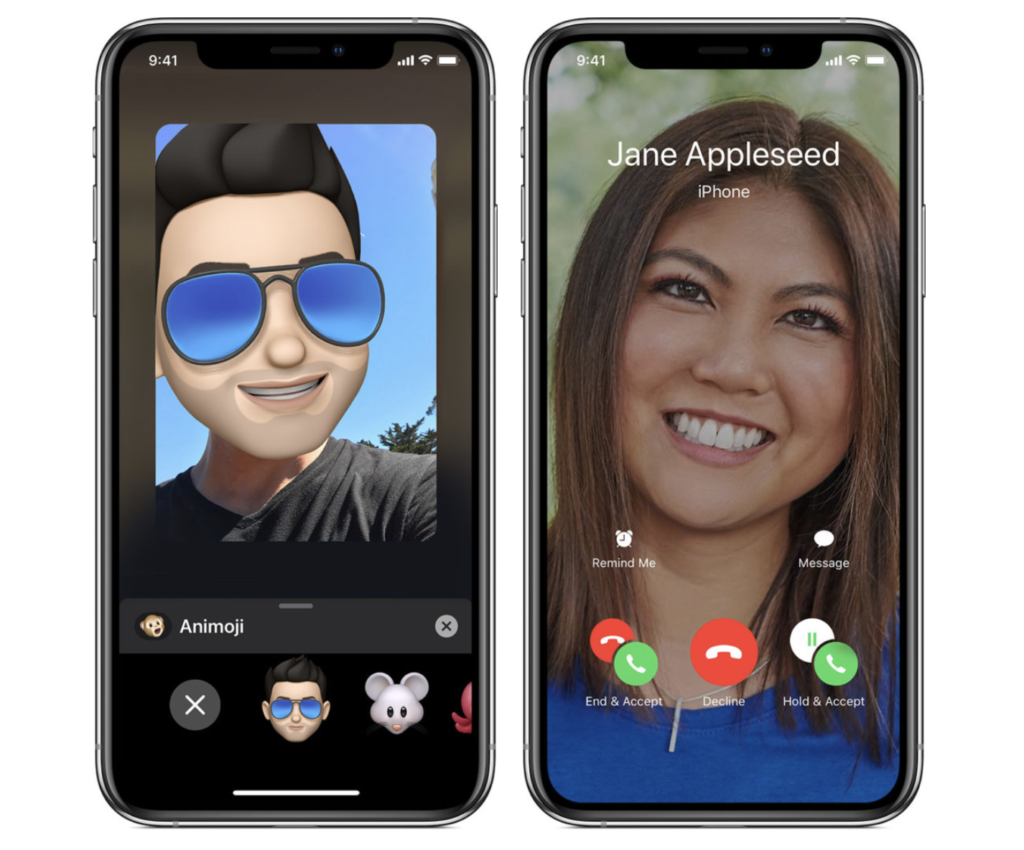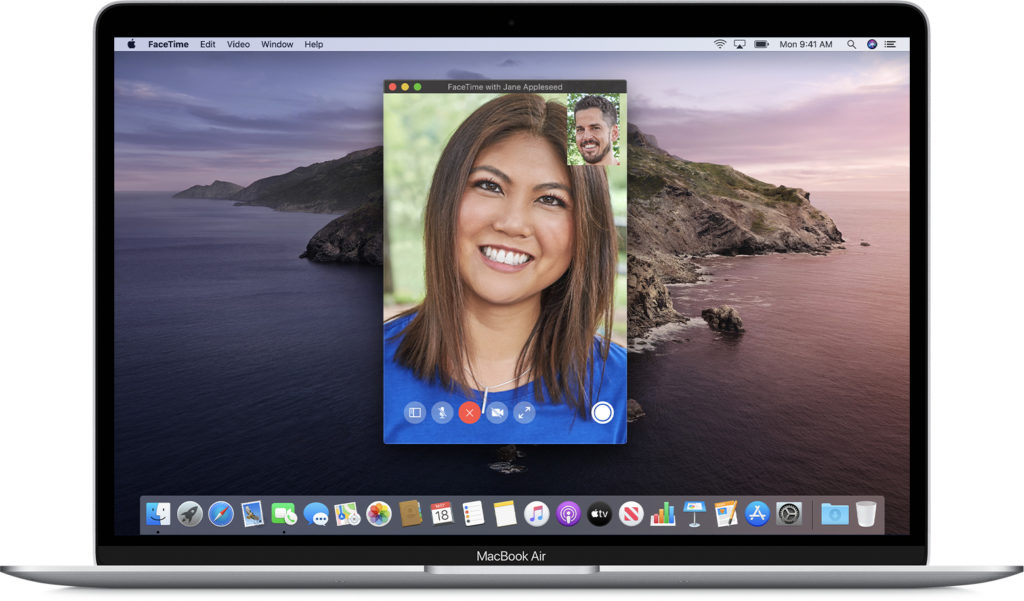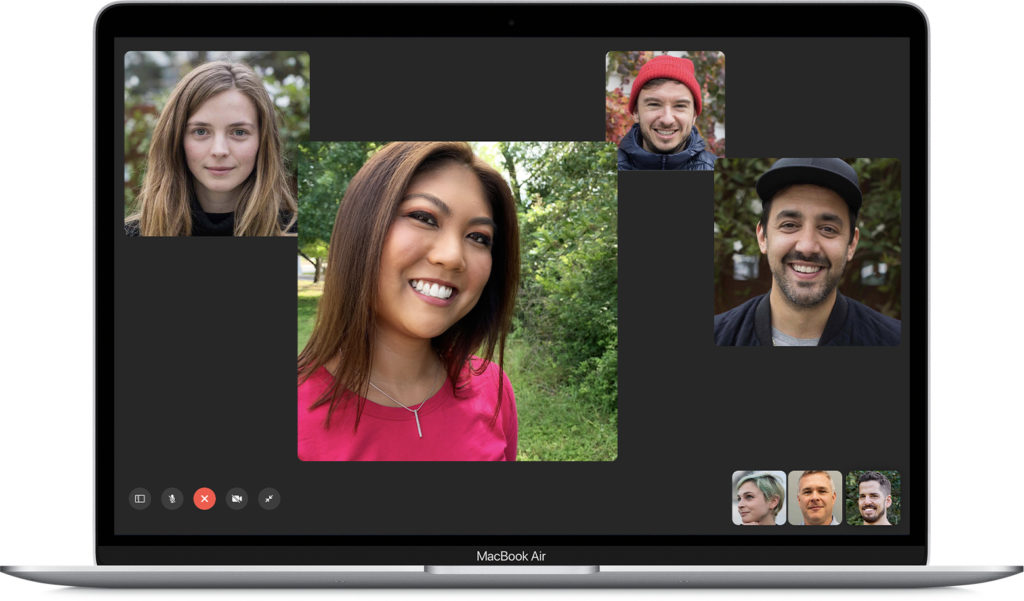Why Apple’s FaceTime Should Be Your Preferred App For Virtual Dates

App-based virtual dates may be social distancing compliant, but they come with other risks to your privacy and security. With so many app choices, which one should you pick?
2020 has been the year of Zoom. Although it has become the most talked about, there are many other platforms vying for a piece of the pie. Examples are Adobe Connect, Microsoft Teams, Google Classroom, Blue Jeans, Webex Meetings, Discord, Whereby or TeamViewer – to name the most well-known. Google Hangouts is being phased out (to be replaced by Google Meet and Google Voice). Granddaddy Skype (now owned by Microsoft) is still a contender. Meanwhile, chat apps and even social media platforms are now including video calling as well. All of these may be used to conduct dates remotely.
But all things considered, FaceTime offers the best package for online dating. Here’s why.

Security
First, let’s talk about cybersecurity. For video chat platforms to work, you must allow the app to access your device’s camera and microphone. Can you be sure that the app doesn’t listen you to when you are not actually using it? Can you be sure that the camera is never activated without your knowledge? You can’t. You have no choice but to rely on the software provider’s security measures.
And speaking of providers: How can you be absolutely certain that the app you just downloaded hasn’t been compromised, or is, in fact, really the latest and most secure version of the app you intended to install?
Here is the first major advantage of Apple’s Facetime. Since it comes with every iPhone, iPad and Mac, you don’t need to install anything. Updates (such as the all-important security updates) can only be done through Apple’s own App Store. This all but rules out that the app itself could become infiltrated and turned into spyware by a malicious hacker.
And, due to the market penetration of the Apple’s iOS platform, which has over 1 billion devices in operation, there’s a high degree of probability that your date already has FaceTime installed as well. If that’s the case, you’re both good to go without anyone needing to install and configure a new app. (The same isn’t true for Android users, where different users may have different third party apps, and you’d first have to negotiate which app to use).
Speaking of third parties, here’s another advantage you’ll enjoy with FaceTime: there’s no need to surrender your contact info, profile pictures, or details about your communications to the third platform operators. Since FaceTime is integrated into Apple’s ecosystem (which also incorporates chat, a calendar, email, your phone’s calling features, your contacts and your photo albums), you share nothing with third parties. Your info stays with Apple, and the company doesn’t want to sell user data to the competition.
The integrity of your communication itself is another advantage of FaceTime. FaceTime calls are protected by end-to-end encryption so that only the sender and receiver can access them. Not even Apple can decrypt the data. (Or so they claim).
One more advantage should be mentioned: You can also use FaceTime for audio calls (without video). This makes it more like a phone call without the need to reveal your cellphone number. More about this privacy feature below.

Privacy
Whenever you are using an app to communicate, you are giving up some privacy. With respect to virtual dates, there are two areas of concern.
In this day and age, you might not want to reveal too much information about yourself to a complete stranger from the get-go. This goes especially if you have met the person online, that is without vetting by a friend, relative or a professional matchmaker, such as Catch Matchmaking.
Since your phone number and email address may be tied to your social media profiles, it is better to avoid using either to make video calls to a complete stranger from the internet. The danger here is that if your unvetted online acquaintance turns out to be some sort of psychopath or jerk, you might receive harassing phone calls or offensive chat messages. Or worse, you might even become a victim of online bullying or cyberstalking.
On many video chat platforms there is no way to keep your online profiles private. This is particularly true for the video chat systems integrated into social media platforms, for example, Facebook Messenger. Others, such as Skype, tie you user account to a discoverable ID. If you are using Skype for business, do you want to use the same Skype ID for online dating?
FaceTime, on the other hand, works differently. It is tied to your Apple ID, which in turn connects all your Apple devices. However, you can choose what identifier you want to use when making and receiving video calls. For example, you could use your Apple ID, or your phone number, or just another email address. You can even set up a unique email address just for dating purposes. This means you can make and receive FaceTime calls without even revealing your cellphone number. This alone doesn’t prevent harassment, but it makes it easier to stop it.

The other privacy issue doesn’t only relate to virtual dating and potential harassment and abuse, but to all uses of video or chat apps: the real purpose for most of these apps is not what you might think it is. There’s an old adage in tech: if you aren’t paying for something, you are the product that’s being sold. Your data, that is.
For instance, if you share your geolocation data with an app, those operating the platform can pinpoint your location precisely. Over time, the log of time stamped location data provides detailed information on your movements and whereabouts. This is a great and valuable marketing tool, and quite bankable.
Think that disallowing your device’s location data to be shared with an app can protect you? Well, it’s better than nothing, but: your location can still be tracked via your IP address, the IP address of the WiFi router you are using, or the wireless cell location data. This may be less accurate, but in combination and in aggregate with other data, the platform can still collect a lot of information about you.
So, for example, if you are using Facebook’s Messenger app, the social network can combine everything it knows about you, your preferences, your location, the posts you pay attention to, the content of your posts, the contents of your text chats, as well as your contact and your Facebook friends’ information to build a dossier about you. Likewise with apps like WeChat, Line, and so on. WhatsApp (owned by Facebook since 2014) offers end-to-end encryption (but users must turn it on) while Facebook Messenger admittedly machine-reads and analyizes all content sent over the network, including pictures. (This was revealed as part of the Cambridge Analytica scandal).
If you read this far, you now understand why these chat apps have become so immensely valuable and command billions in IPOs. You may think of them of a convenient way to communicate. But the providers think of them as a convenient way to watch you and build a profile on you. A profile that’s marketable, of course. There is no such thing as “free”. Someone always pays.
This is again where Apple’s system shines. Apple makes enough money from what its customers pay for hardware and services. This means Apple doesn’t need to make money from seller information about is customers, which removes the incentive for the company to constantly snoop on you. And during a virtual date, when you might be sharing many personal details, you might want more privacy than when you are simply texting a friend about the weather.
The only downside: FaceTime only works on Apple devices. At some point, Apple tried to make FaceTime available to non-Apple users and devices, but these plans were put on hold due to performance and security reasons. (For you nerds: Apple’s Session Initiation Protocol implementations adds techniques to enhance performance at the cost of breaking interoperability. Examples are: port multiplexing, Session Description Protocol minimization and SDP compression. And if the app was made available outside its ecosystem and AppStore, Apple cannot guarantee its integrity).
Warning: There are apps that claim to make FaceTime available for Windows, Android or other platforms. Although often called “FaceTime” (or similar) these are not provided or sanctioned by Apple, which means you are totally on your own when it comes to security.
But if you and your date are both Apple users, then FaceTime should be your first choice for virtual dates.
And finally there is, as Steve Jobs used to say, “one last thing”. If one-on-one virtual dates seem a little too intimidating, you might consider joining a group video chat. FaceTime implements this functionality for up to 32 participants, and the “look and feel” beats that of the Zoom app, but without the privacy and security issues.

Reinhard Kargl is a journalist covering science and technology. Disclosure: The author is a shareholder of various tech companies, including Apple Inc.







